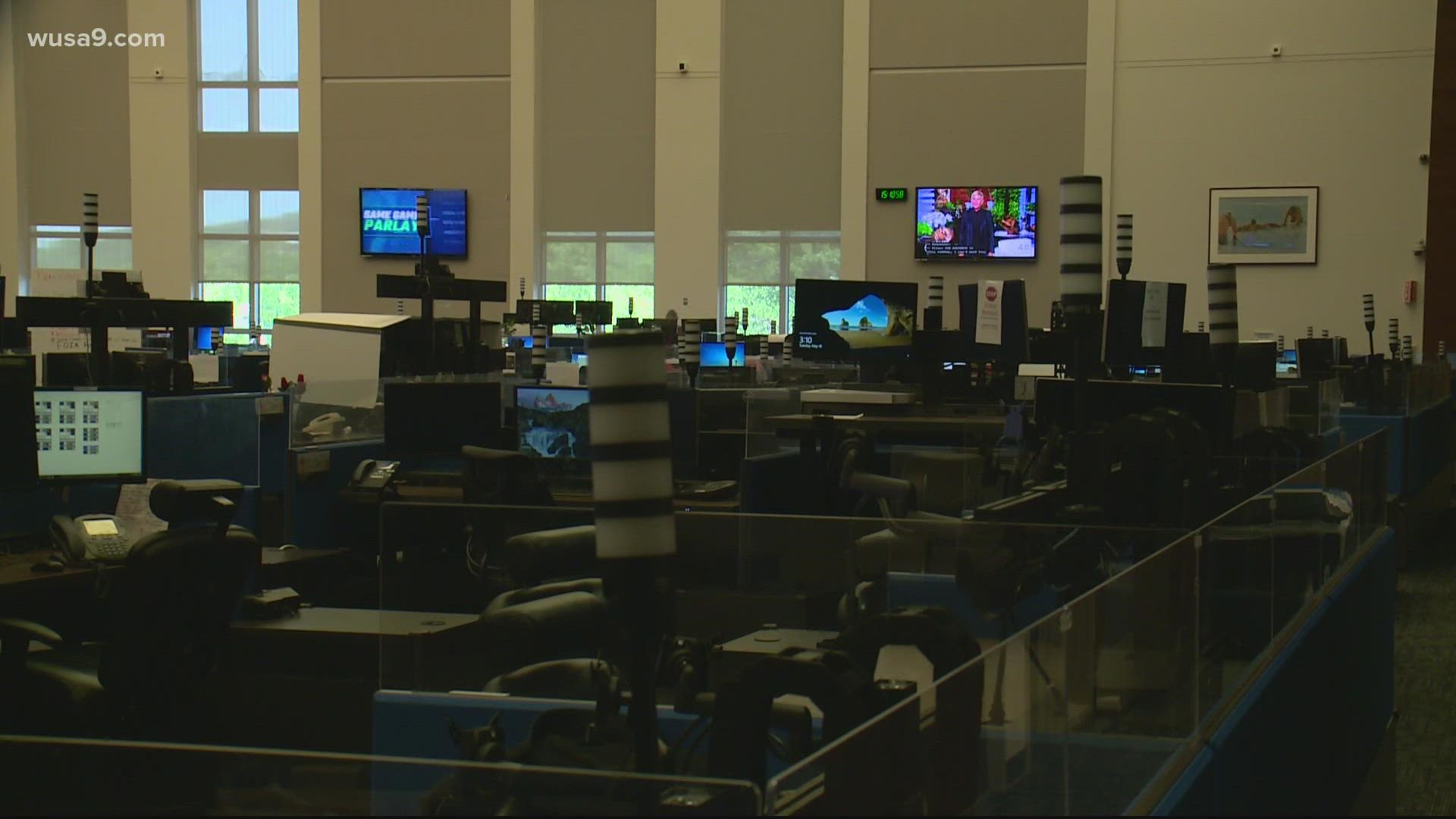WASHINGTON — A new report from the Office of the D.C. Auditor found 911 dispatchers with the Office of Unified Communications improperly handled calls, struggled to determine the location of emergencies and failed to meet national safety standards.
ODCA partnered with public safety communications consulting firm Federal Engineer, Inc. (FE) after numerous complaints from advisory neighborhood commissioners and families affected by mistakes from OUC, which include sending first responders to the wrong address.
The report found there was a lack of adequate oversight of call-taking and dispatch operations. It resulted in failing to follow policies and procedures, and a proper follow-up to make sure everyone is in compliance across the board.
The report notes that staff autonomy due to lack of supervision “creates independence and stronger skillsets in some, while creating stress, inconsistencies, and habitual errors, in others.” This lack of consistent and present oversight also has created a culture in which cliques, bullying, and uncorrected inappropriate behaviors exist, the report said.
OUC recommends increasing the number of shift supervisors from 11 to 38. While the report did not list the increase in cost, D.C. Auditor Kathleen Patterson said there is "absolutely a resource impact" on the recommendation.
The issues also include inconsistent or ineffective use of script call handling protocols by the operator. A script gives step-by-step instructions but FE found inconsistencies. In at least 27 of 72 sample calls reviewed by FE, dispatchers would adlib or improvise, and clearly not follow the script.
"It was clear in observations and call reviews that unnecessarily deviating from the script by discretion and improvising are common," the report stated.
The average time for OUC to answer a 911 call is 5.2 seconds and the average talk time is 111.2 seconds.
The way technology was being used also played a factor in delayed help. No one used a computerized map to plot the location of a caller but instead relied solely on questioning the call for a location, the consultants said.
The report said call-takers would routinely erase the X/Y coordinators and replace them with the caller's reported location, which seemed to indicate a lack of trust in the cell phone caller's location. The equipment did not automatically locate callers using a cell phone for better accuracy.
"Call-takers must choose among some 500 call/event types, called chief complaints, for both law enforcement and FEMS situations," the auditor said. This has unnecessarily complicated the complaint type assignment process resulting in chief complaint selection errors in the scramble to get calls processed. The selection of an incorrect chief complaint has a ripple effect on response, including a possible default to a lower priority. Lower priority calls in a high-volume event environment do not receive the level of attention as do calls of a higher priority and may be overlooked by dispatch staff."
During the audit, OUC began implementing the tracking tool RapidSOS, which can locate the caller using a cell phone by entering the phone number and receiving the known location of the device.
"An Uber driver can find you, a Dominos Pizza delivery driver can find you, 911 cannot always find you," said audit consultant Sherri Bush. "These location determining technologies bring that to another level, able to locate the callers in emergencies faster and quicker and more accurately."
Interim Director Cleo Subido’s sent a statement responding to the 911 Operations audit:
"The Office of Unified Communications (OUC) has taken, and continues to take, positive measures to improve service delivery to our residents. As noted in the recently-released audit report, we have made significant strides in call-taking metrics, maintaining a culture of accountability and excellence, supporting our staff’s mental health, and building collaborative relationships with partner agencies.
While we are pleased with our progress, we recognize that there is more work to be done. We are firmly committed to continuing to improve our critical 911 service provision. Through significant investments in FY22 the OUC will continue recruitment efforts to ensure a full complement of call takers, enhance staff training to further improve the accuracy of address locations, launch a Supervisors Development Initiative aimed at developing our supervisors' skills to foster a supportive and fair working environment which is committed to operational excellence, and help our team at all levels to provide quality dispatch services to residents across all eight wards.
OUC is, and always will, remain committed to answering the call in times of crisis for those that live, work, or visit the District of Columbia."

